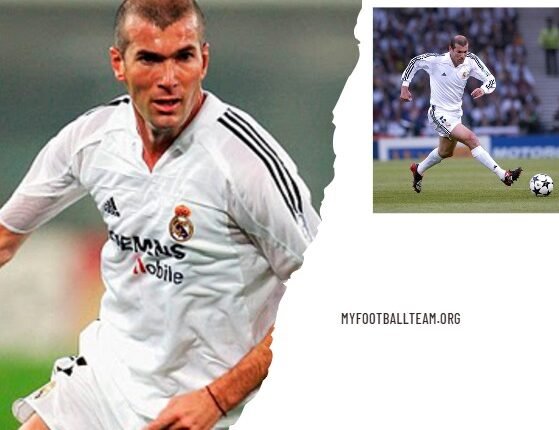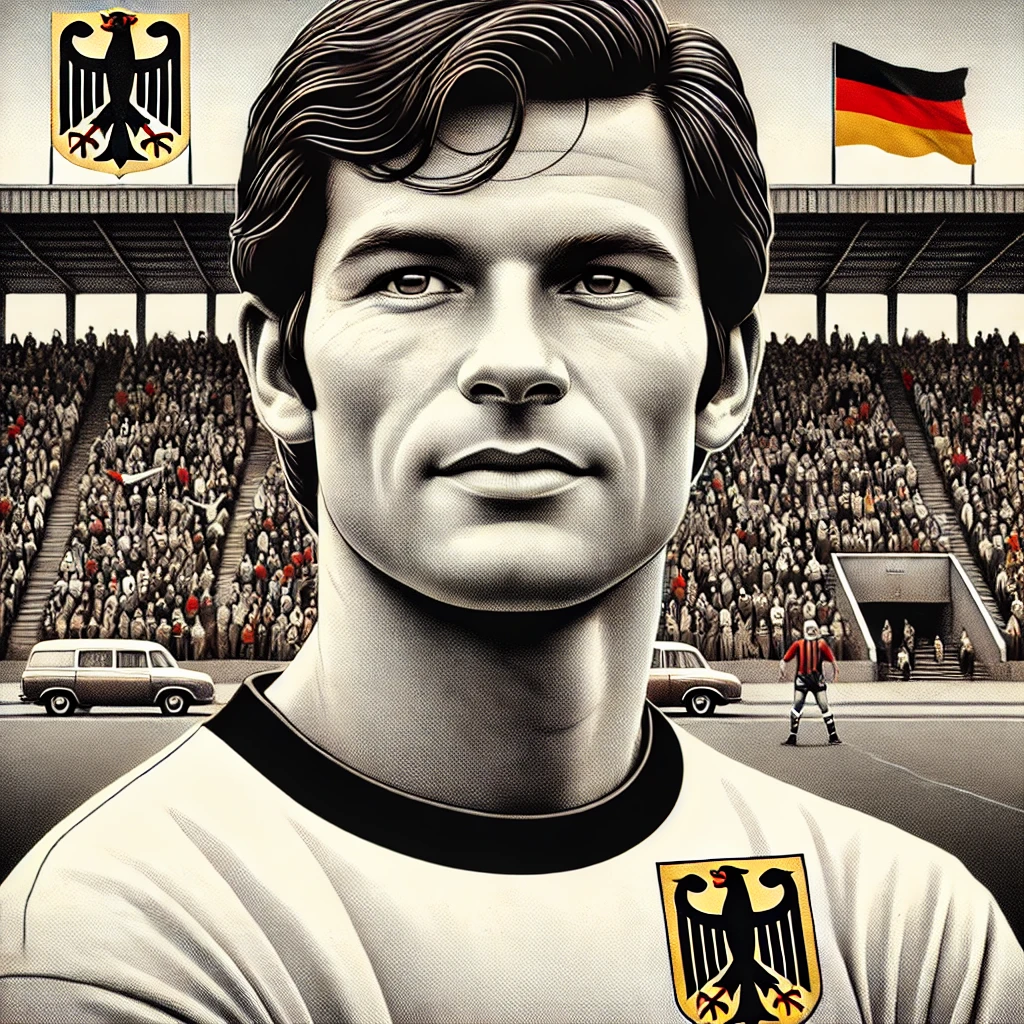Zinedine Zidane, often regarded as one of the greatest footballers in history, has left an indelible mark on the world of football through his exceptional talent, vision, and leadership on the pitch. Known for his elegance, creativity, and composure, Zidane’s journey to the top of world football is one of immense hard work, resilience, and, of course, success. This article will explore his remarkable career, focusing on his goals and achievements, the impact he had on the teams he played for, and the lasting legacy he created in the football world.
Early Life and Career Beginnings
Born on June 23, 1972, in Marseille, France, Zidane grew up in a working-class family of Algerian descent. From a young age, he showed an exceptional talent for football, quickly rising through local youth teams before joining AS Cannes at the age of 14. His early years at Cannes were formative, where he developed his technical skills and began to stand out as a playmaker. His impressive performances earned him a move to Bordeaux in 1992, where his talent continued to shine, catching the eye of scouts from top European clubs.
Breakthrough at Juventus
In 1996, Zidane made a move to Juventus, one of Italy’s most prestigious clubs, marking a turning point in his career. His time at Juventus saw him establish himself as one of the finest midfielders in the world. Zidane’s technical ability, dribbling, vision, and passing accuracy were exceptional, and he quickly became the centerpiece of the Juventus midfield. During his time in Turin, Zidane won two Serie A titles (1997, 1998), and although the Champions League eluded him, he earned individual recognition with several accolades, including the 1998 FIFA World Cup Golden Ball and the 1997 Ballon d’Or nomination.
His most memorable moments at Juventus include his iconic performances in the 1996 UEFA Champions League campaign, where Juventus reached the final, although they were ultimately defeated by Borussia Dortmund. Nonetheless, Zidane’s consistent performances on the big stage solidified his reputation as one of the most talented players of his generation.
The 1998 FIFA World Cup: Zidane’s Breakthrough Moment
Zidane’s international breakthrough came during the 1998 FIFA World Cup, held in France. Zidane played a pivotal role in guiding his national team to its first-ever World Cup title. The tournament saw Zidane score two goals in the final against Brazil, both coming from headers off corner kicks. These goals were emblematic of Zidane’s ability to deliver on the biggest stage, even in moments of immense pressure. France’s 3-0 victory over Brazil in the final was a historic moment for French football and cemented Zidane’s legacy as a world-class player.
This World Cup success also marked the beginning of Zidane’s era of dominance with the French national team. He became the captain of the team and was regarded as the heart and soul of the squad. Zidane’s leadership on and off the field was critical in the French team’s triumph, and he continued to inspire future generations of players.
Real Madrid: The Galactico Era
In 2001, Zidane made a high-profile transfer to Real Madrid for a then-world record fee of €77.5 million. At Real Madrid, Zidane became part of a star-studded team during the “Galacticos” era, playing alongside some of the biggest names in football, such as Ronaldo, Roberto Carlos, and Raúl. Zidane’s addition to the squad brought an extra layer of flair, creativity, and stability to the team, and his arrival coincided with a period of tremendous success for the club.
One of Zidane’s most memorable moments at Real Madrid came in the 2002 UEFA Champions League final against Bayer Leverkusen. Zidane scored one of the greatest goals in Champions League history – a stunning left-footed volley from outside the box that secured Real Madrid’s 2-1 victory. This goal not only solidified Zidane’s status as one of the best players in the world but also played a crucial role in Real Madrid’s success, as they clinched their ninth European Cup/Champions League title.
Zidane won a total of 9 major trophies with Real Madrid, including La Liga (2003) and the Champions League (2002), in addition to the 2002 Intercontinental Cup and the Spanish Super Cup. His time at the club was marked by his incredible ability to influence games with his vision, passing, and skillful dribbling. His leadership qualities were evident as he guided a team full of superstars to collective success.
International Glory: The 2000 UEFA European Championship and 2006 World Cup Final
Zidane’s international career continued to flourish after the 1998 World Cup. In 2000, he helped France win the UEFA European Championship, contributing to the team’s victory with his leadership and a memorable performance in the final against Italy. Zidane’s role as a leader was crucial to France’s success during this period, as they continued to dominate European and global football.
However, it was the 2006 FIFA World Cup that once again saw Zidane deliver on the biggest stage. At the age of 34, Zidane led the French national team to the final, where they faced Italy. Zidane’s performances during the tournament were nothing short of magical – he scored a penalty in the final against Italy, and his creativity and composure were pivotal to France’s journey to the final. Unfortunately, his career took a controversial turn when he was sent off in extra time of the final for headbutting Italy’s Marco Materazzi after a verbal exchange. Despite this, Zidane’s performances in the tournament earned him the Golden Ball award as the best player of the 2006 World Cup.
Although France ultimately lost to Italy in a penalty shootout, Zidane’s performance in the tournament was a testament to his brilliance, skill, and leadership. His final international appearance left fans with mixed emotions: pride in his exceptional talent, but sadness at the way his career ended. Zidane’s legacy, however, remained untarnished, and his influence on the French national team continued to resonate.
Zidane as a Coach
After retiring from football in 2006, Zidane transitioned into a career in management. In 2016, he became the manager of Real Madrid, a role that many believed was a daunting challenge considering the immense pressure associated with managing one of the most famous clubs in the world. However, Zidane proved to be an astute and successful manager, leading Real Madrid to three consecutive UEFA Champions League titles in 2016, 2017, and 2018. His tactical acumen, calm demeanor, and ability to manage a squad full of high-profile players earned him widespread praise.
Zidane’s coaching philosophy was rooted in trust, simplicity, and tactical discipline. Under his guidance, Real Madrid played an attacking, high-pressing style of football, which made them one of the most formidable teams in Europe. Zidane’s ability to manage egos, keep players motivated, and make key decisions in high-pressure situations was a defining factor in his managerial success. His success as a coach further cemented his place as one of the greats of football, both as a player and a manager.
Legacy and Influence
Zidane’s influence on the football world extends far beyond his individual goals and trophies. His playing style, characterized by elegance, intelligence, and grace, inspired countless young players around the globe. Zidane’s ability to control the tempo of a game, his precise passing, and his vision made him one of the most complete midfielders the game has ever seen. His remarkable balance, flair, and ability to perform in crucial moments set him apart from his peers.
Zidane’s influence is also evident in his managerial success. As a coach, Zidane demonstrated that leadership and understanding of the game are as important as tactical knowledge. His success at Real Madrid proved that Zidane’s legacy was not limited to his playing days but also extended to his impact as a manager and leader.
Conclusion
Zinedine Zidane’s career is a testament to what can be achieved through talent, hard work, and perseverance. His goals, whether for France or Real Madrid, are etched in the memories of football fans around the world. From his stunning performances in the 1998 World Cup to his defining goal in the 2002 Champions League final, Zidane’s legacy as a player is secure. As a coach, Zidane has proven that his understanding of the game extends far beyond his playing days, and his impact on the sport continues to resonate. Zidane’s legacy is not just defined by the goals he scored or the trophies he won, but by the way he transformed the way we think about football, inspiring future generations of players and coaches.









